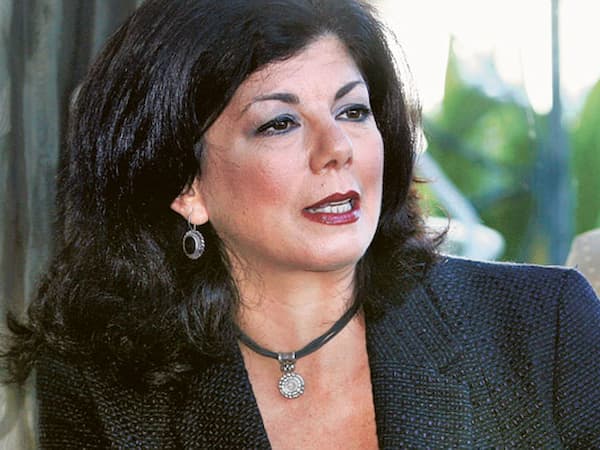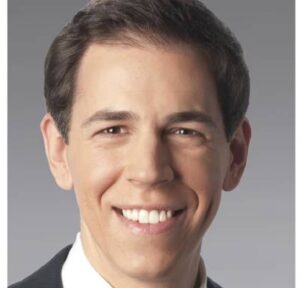Octavia Nasr Biography
Octavia Nasr is Lebanese-American Middle Eastern affairs are covered by journalists. For more than 20 years, she worked as CNN’s Senior Editor for Mideast issues. She lost her job at CNN in July 2010 as a result of a tweet on the cleric Mohammad Hussein Fadlallah.
Octavia Nasr Age
Nasr is 56 years old as of 2022. She was born on 13 March 1966 in Beirut, Lebanon.
Octavia Nasr Height
Nasr stands at a height of 6 feet 5 inches.
Octavia Nasr Family
Nasr has not shared any information regarding her loving parents as of now, 2022. Nonetheless, we will update the site as soon as we get more intel from our trusted sources of information as soon as possible.
Octavia Nasr Wife
Nasr has not shared any information regarding her loving parents as of now, 2022. Nonetheless, we will update the site as soon as we get more intel from our trusted sources of information as soon as possible.
Octavia Nasr Salary
Nasr has been very secretive with her annual pay scale as of now, 2021. However, there is no doubt that she has been accustomed to good pay in terms of salary as she has been able to work with profound films. Nonetheless, we will update the site as soon as we get more information on the same from our trusted sources.
Octavia Nasr Net Worth
Nasr has also not declared her net worth to the public as of now. Nonetheless, there is no doubt that she has been able to accumulate a good figure in terms of her net worth throughout her career in the film industry. However, we will update the site as soon as we get more information on the same.
Octavia Nasr Reactions
Following Nasr’s firing, articles and commentary have been divided. Thomas Friedman was one of many who expressed concern over the choice, claiming that it damaged the network’s reputation and gave the wrong impression to aspiring journalists. I find Nasr’s firing unsettling, he wrote. He inquired about CNN’s response by saying, “First of all, what has happened to us? One incorrect verb now might result in a digital lynch mob pursuing you within hours, sending your managers running for shelter “.
Can you image what would happen to a U.S. journalist who expressed respect for an Al Qaeda commander who had other, better qualities? said Mediaite’s Dan Abrams in response. That remark sparked a fierce outcry from Far Right outlets, Thought Crime enforcers, and other neocon precincts, according to Glen Greenwald in Salon.com, and CNN immediately caved in by firing her. Fadlallah was referred to by Greenwald as “one of the Shiite world’s most adored religious figures,” noting how many people in the west thought highly of him as evidenced by Time Magazine’s selection of him as Man of the Year 2010 Fond Farewell. Others expressed worry over what they perceived to be comparable events, most notably the one-month earlier forced retirement of Hearst syndicated journalist Helen Thomas.

People who supported CNN’s choice said that it was within its rights to uphold standards of objectivity in its reporting. The dismissal of Nasr, in the opinion of many who backed her, signaled a new political trend for journalists and reporting on politically sensitive matters in general, and the Middle East in particular.
Shmuley Boteach, an Orthodox Rabbi, wrote: “An imam like Fadlallah, who wants to kill Americans and Israelis but is surprisingly kind to women, has advanced significantly from the Dark Ages for people like… Nasr…, and is due of admiration and acclaim. Of course, this approach is historically incorrect in addition to being profoundly immoral and insulting nonsense.”
“CNN’s Octavia Nasr: Another Victim of America’s Thought Police,” a Huffington Post piece, claims that “Since 9/11 America’s redline has equated terrorism and Israel’s security, flattening any diversity and particularity.” This has severe repercussions for both the implementation of policy and the regulation of public opinion, as Stephen Walt and John Mearsheimer noted (they were labeled anti-Semites for this). While The Guardian compares the occurrence to another controversy surrounding the death of Fadlallah, especially a homage to him that came from the UK ambassador to Beirut, Nasr is one of the more high-profile victims of a phenomenon known as “twittercide.” In contrast, Robert Fisk attacked CNN’s credibility in relation to the sacking, saying “CNN, the poor thing, continues to be more and more cowardly. Because of this, nobody is interested in it anymore.”
Octavia Nasr Career
Nasr has more than 20 years of experience covering important Middle East-related issues for CNN’s international platforms, both on- and off-air. She began working for the network shortly after Saddam Hussein invaded Kuwait, organizing network coverage of the Gulf War as a member of CNN’s global assignment desk. In 2002, Nasr received an Overseas Press Club Award. She oversaw a 15-person Arab desk in 2003 that was responsible for coordinating coverage of the Iraq War and serving as executive producer of CNN’s Arab Voices.
She received the 2003 Achievement Award from CNN World Report in addition to the 2006 Excellence in Journalism Award from the Lebanese-American Chamber of Commerce. She was honored with the Edward R. Murrow Award in 2006 for her ongoing coverage of the conflict in Lebanon, as well as the Golden Cable ACE Award in 1993 for her reporting on the Gulf War for CNN.
As the editor of CNN’s Middle East coverage, Nasr came under fire for this alleged demonstration of sympathy and support for Hezbollah. It was argued that her stated viewpoint was incongruent with her position at CNN. Columnist Magda Abu-Fadil of the Huffington Post writes about concerted internet campaigns to denounce Nasr’s remarks and demand that she be fired.
More of our content includes Forrest Sawyer, Joan Lunden, Jim Avila, Joan Lunden, Cecily Tynan, Robin Roberts, George Stephanopoulos, Michael Strahan, Lara Spencer, Ginger Zee, David Muir, Amy Robach, Kendis Gibson, Diane Macedo, Rob Nelson, Paula Faris, and Reena Ninan.

